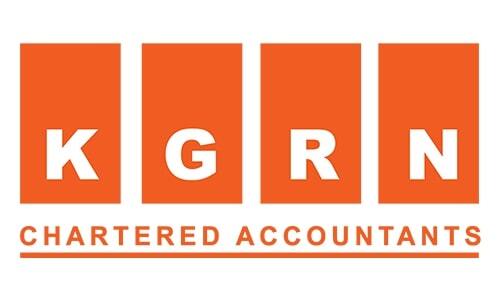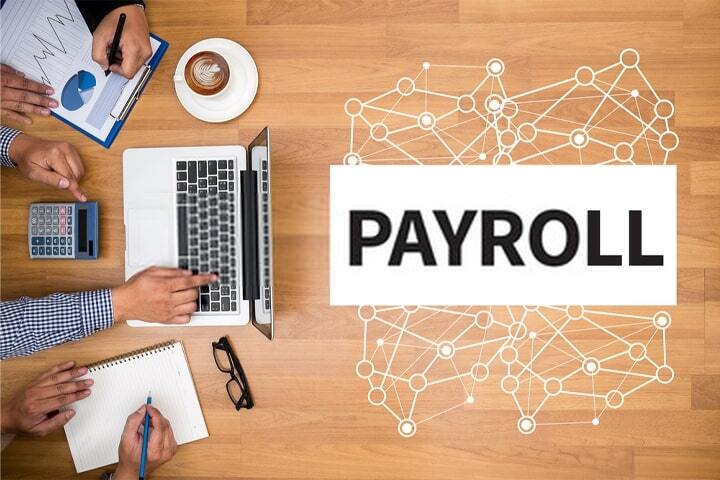Payroll management, also known as human resource management (HRM), encompasses a comprehensive set of tasks related to handling a company’s payroll. It involves the efficient management of personnel data, salaries, hourly wages, payment processing, and payroll taxes. Additionally, payroll management extends to areas such as bonus administration and handling special employee compensation situations.
One crucial aspect of payroll management is compliance with government and regulatory authorities. Various governmental regulations dictate specific requirements for payroll processing. For instance, legal obligations may mandate the maintenance of payroll tax records for a minimum of four years following the due date or payment (whichever comes first).
The process of payroll management involves several essential steps. Let’s explore them in further detail:
- Personnel Data Management: Effective payroll management begins with accurately recording and maintaining personnel data for each employee within the organization. This includes personal details, employment contracts, tax information, and any other relevant documentation.
- Salary and Hourly Wage Calculation: Calculating accurate salaries and hourly wages is a crucial aspect of payroll management. This involves considering factors such as base pay, overtime hours, commissions, and deductions, ensuring that employees are compensated correctly and in compliance with labor laws and company policies.
- Payment Processing: Once salaries and wages are calculated, payroll management oversees the payment processing. This involves the issuance of paychecks, direct deposits, or any other agreed-upon payment methods. Timely and accurate payment processing is crucial to maintaining employee satisfaction and meeting financial obligations.
- Payroll Taxes and Reporting: Payroll management entails compliance with tax regulations and the accurate calculation, withholding, and remittance of payroll taxes. It is essential to calculate and deduct the appropriate amounts for income tax, Social Security contributions, Medicare, and other statutory deductions. Compliance with reporting requirements, such as providing employees with annual tax statements (W-2 forms in the United States), is also a key responsibility.
- Bonus Administration and Special Employee Compensation: Beyond regular salaries and wages, payroll management oversees the administration of bonuses and manages compensation for unique circumstances, such as incentive schemes, profit-sharing plans, or stock options. This includes ensuring accurate calculations, proper documentation, and appropriate reporting.
- Government and Regulatory Compliance: Payroll management requires diligent adherence to government and regulatory requirements. This includes staying up-to-date with changes in labor laws, tax regulations, and reporting obligations. Compliance ensures that payroll tax records are maintained for the required duration and that all necessary reports are submitted to the relevant authorities within designated deadlines.
In reality, a total of 20 distinct payroll-related documents must be retained in order to fulfil the criteria of the federal government for compliance. The following are their given names:
- Statements of Withholding for Income Taxes
- Each employee’s name, address, and Social Security number are required.
- The amount and date of each compensation award are shown below.
- In each payment, the amount of earnings subject to withholding is stated.
- The amount of withholding tax withheld from each payment is expressed as a percentage.
- As a result, the taxable amount is less than the total amount of money received.
- Statements on the non-resident alien status of employees.
- The market value and timing of non-cash remuneration are important considerations.
- Payments made through sick-pay programmes are recorded in this database.
- Certificates of exemption from withholding taxes
- Provisions for the withholding of extra money on a voluntary basis
- Employees’ non-business services are scheduled and paid for on specific dates.
- Employee tip-receiving records are kept on file.
- Requests for various sorts of withholding tax computations have been received.
Returns on Social Security Benefits (FICA)
- FICA tax is deducted from the portion of each payment that is subject to it.
- In addition, the amount of FICA tax collected on each payment is displayed, as well as the date on which it was collected.
- Any contradiction should be explained as soon as possible.
Federal Unemployment Tax Act (FUTA) Document Reproductions
- The total amount of money that was paid out during the course of the fiscal year
- Unemployment insurance tax is levied on the amount of money earned.
- Contributions to the state’s unemployment compensation fund
Payroll Management Is Critical to Your Business’s Success
One of the most significant responsibilities of a corporation is the management of its payroll system. The state of the financial institution has a direct bearing on the ability of the firm to pay its employees’ wages, as well as on the level of employee loyalty and morale, as well as on the company’s general reputation as a trustworthy and proactive organization. Employee confidence and motivation can be quickly eroded when payroll administration practices such as late payments or ineffective practices are used.On the other hand, the administration of payroll is essential to guaranteeing compliance with the regulations imposed by the federal government. The Internal Revenue Service and other government regulatory agencies keep a strict eye on the manner in which employees’ taxes are withheld and submitted to the government. This is in addition to keeping a close check on the manner in which employees are paid.
Key Considerations for Selecting a Payroll Management System
Business Needs and Size
Evaluate your modern enterprise needs, the scale of your enterprise, and any potential growth projections. Ensure that the payroll software program aligns with your particular necessities, whether you have got part-time or complete-time employees, distinctive styles of contracts, and scalability to accommodate future growth.
Compliance and Accuracy
Opt for a device that guarantees compliance with UAE hard work laws, along with the Wages Protection System (WPS). Look for software program that could deal with complex payroll situations particular to the vicinity and offers functions to preserve correct employee master documents and generate obvious payslips to avoid consequences and make sure well timed bills.
Cost Savings and Efficiency
Consider the fee savings associated with outsourcing payroll offerings versus in-residence processing. Look for software program that can beautify performance, shop time, automate obligations like information access and calculations, and unfastened up internal sources to awareness on center business sports.
Data Security and Technological Innovation
Prioritize payroll software vendors that prioritize records protection, shield touchy worker facts, and provide technological innovation inclusive of cloud-based totally structures for more suitable security and accessibility.
Customizable Reporting and Features
Choose a payroll control machine that gives customizable reporting capabilities, specified reviews on payroll expenses, and functions that meet your unique commercial enterprise necessities, which include processing salaries, incentives, bonuses, and price claims reimbursements.
Highlights about Payroll Process Management Systems:
- Automated Calculations: Payroll Process Management Systems can automate the calculation of payroll taxes, deductions, and benefits, ensuring accurate and timely payments to employees.
- Time and Attendance Integration: Many payroll systems integrate with time and attendance systems to ensure accurate calculation of employee hours and attendance records.
- Direct Deposit: Payroll systems can offer the option of direct deposit, which allows employees to receive their paychecks directly in their bank accounts, saving time and reducing errors.
- Compliance: Payroll systems can help businesses stay compliant with tax laws and regulations by ensuring accurate tax calculations and providing timely tax filings and reporting.
- Reporting: Payroll systems can generate various reports, such as payroll summaries, employee earnings statements, and tax reports, which can help businesses monitor their payroll expenses and comply with regulatory requirements.
- Access Control: Payroll systems can also provide access controls to ensure that only authorized personnel can access confidential payroll information.
- Cost Savings: Payroll systems can help businesses save time and reduce errors, which can lead to cost savings in the long run.
Overall, Payroll Process Management Systems offer numerous benefits for businesses, including improved accuracy, compliance, and cost savings.
Maintaining Accurate Payroll Records
A company’s payroll records must be accurate, up to date, and compliant in order to function properly. The Fair Labor Standards Act (FLSA), which requires businesses to maintain accurate records for all non-exempt employees, was the impetus for the development of many of the regulatory requirements governing payroll record keeping today.
Businesses, on the other hand, benefit from having payroll data that is accurate and complete. It enables them to understand where their remuneration is going and whether or not it is just and appropriately compensates them for their contributions to the company.
Managing Employee Accessibility is a challenging task.
Apart from making sure that financial payroll information is always available to regulatory organisations, ensuring that employees have access to specialised payroll information is critical (and legally mandated). Benefit summaries, 401(k) summaries, check history and deduction totals, direct deposit details, time clocks, and paid time off information are just a few of the options available.
Apart from the ability to read and download important documents such as tax withholding information and W-2s, employees may also be able to make inquiries and ask questions about their pay. Other payroll-related services include the ability to read and download important documents such as tax withholding information and W-2s, alter their specific withholding settings, and make inquiries and ask questions about their pay.
The employee experience with payroll at a firm will be improved if the payroll information is straightforward and easily available. All of the material on this website is provided primarily for informative purposes and is not intended to be a source of advice, including but not limited to financial, legal, or tax advice. Contact us for Payroll Management Service in UAE
FAQ’s For Payroll Manangement Systems
Income tax withholding records encompass any documents detailing the calculated withholding of taxes from an employee’s paychecks, also known as withholding records. Employers are mandated to withhold a portion of employee taxes and remit them to the government annually, as each employee owes taxes to the federal government on their wages. Thorough tracking and documentation of these tax withholdings are crucial.
FICA, or Social Security Tax Returns, pertain to deductions for social security from every employee’s pay, aimed at providing for former employees upon their departure from the company. Employers must document social security taxes, including the amount subject to these taxes per payment, the collection date and amount of the tax, and explanations for any discrepancies.
Federal Unemployment Tax Accounts, also known as FUTAs, are payroll records detailing a company’s unemployment tax payments. These records include the total unemployment tax paid in a year, payroll subject to unemployment tax, contributions to state unemployment funds, and any other information required on an unemployment tax return by the federal government.
Precision, efficiency, and timeliness in payroll processing are not just legally required but also crucial for employee satisfaction. Errors in payments or delays can alienate employees from company leadership. Paychecks should accurately reflect salaries, hourly wages, unpaid overtime, and bonuses. Including essential tax deductions is essential to stay compliant with the Internal Revenue Service.
Many businesses have a dedicated Payroll Manager responsible for payroll administration, including tax deductions and documentation completion. These managers play a crucial role in ensuring accurate data management, meeting filing deadlines, and maintaining compliance with payroll tax regulations.






